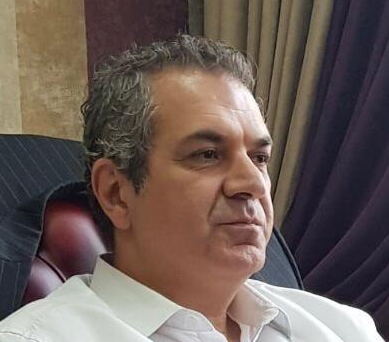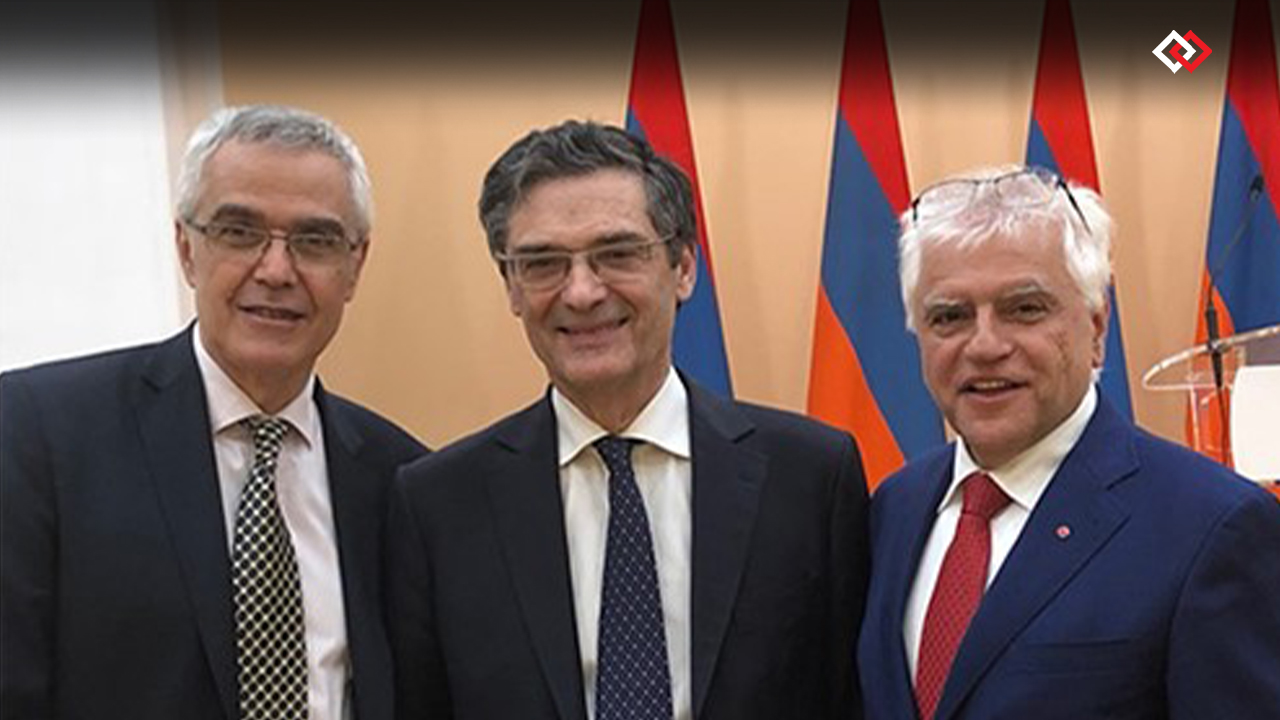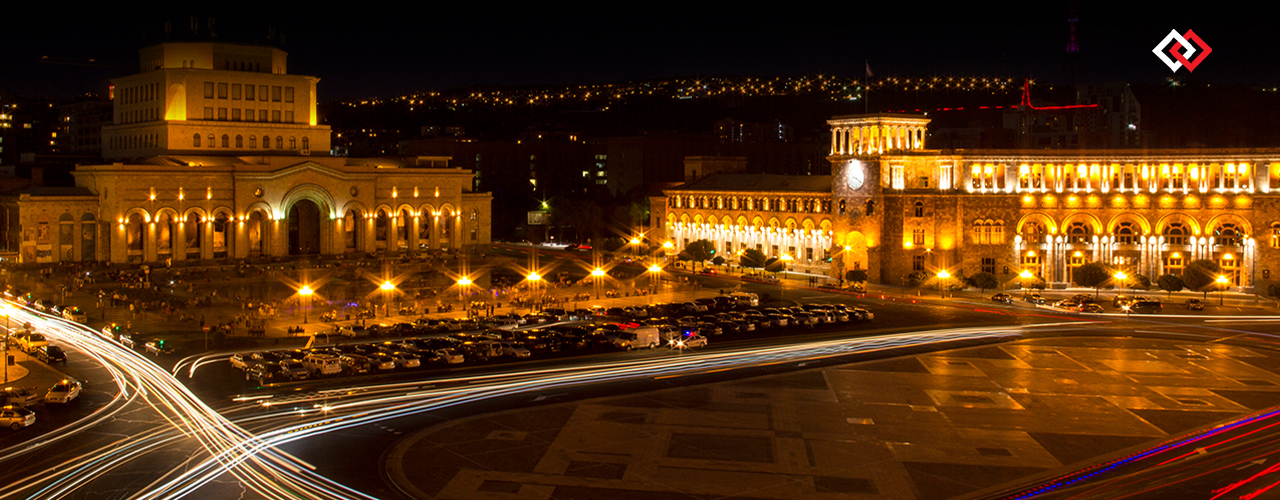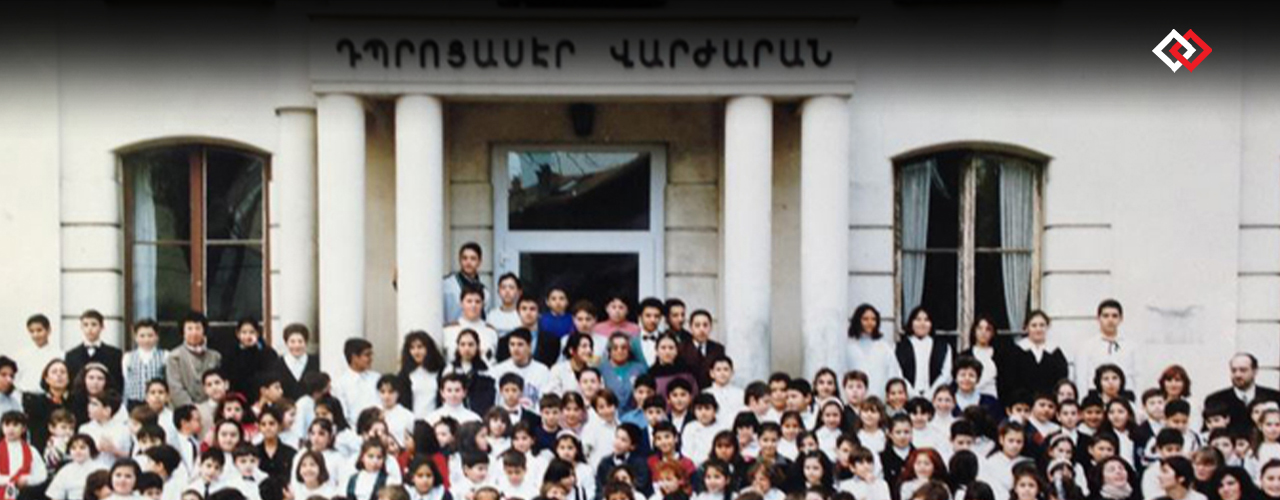Situation, opportunities, organisation
The Diaspora embodies power and represents a value which, however, is unorganized, mostly unused and unrevealed by the Armenian political leadership. How is it possible to revitalize and modernize the Diaspora in parallel to shaping and establishing our pro-state and pan-Armenian way of thinking, thus putting it at the service of factual strengthening of Armenia, the Diaspora itself and establishing of a horizontal inter-Diaspora cooperation?
Situation
The Armenian Diaspora has its internal developments, which began and gained momentum after the great migration reaching different countries, and organised according to the local peculiarities of the communities formed there.
Eastern communities were formed, where the language, culture and traditions were based on a stronger and more stable Armenian foundation, and where communication with the local environment and assimilation into it were more difficult than the communities that formed in Western countries, Latin American or former Soviet countries. In these westernised communities they also developed in a previously richer environment, but gradually eroding and depleting the Armenian cultural and educational activities, and where the number of Armenian-minded people and living as Armenians has decreased, from decade to decade, evolving to what is commonly called people of “Armenians of origin”.
The phenomenon of the type of Armenian should also be mentioned here, which differs according to the country of residence and according to the family or social environment. There is the active Armenian, the involved in organizational life, the one with little or no involvement, frequent or rare participant, living only in the family environment, speaking Armenian but not thinking and creating in Armenian and so on. And to this must be added to the Diaspora, and mainly the Western diasporas the compatriots who emigrated from Armenia in recent decades, bringing new energy, and who live in isolation here and there, not mixing with the classical Diaspora, have in some places created cultural and educational structures which are still modest (depending on the country), but which at the same time show their serious participation in the activities organized for April 24 or in humanitarian actions and the demonstrations for the benefit of Artsakh.
It should be welcomed and appreciated those in the path of assimilation, or at least the tangible resurgence of seemingly indifferent Armenians in recent decades, and the uncomplicated display of a sense of national belonging, influenced by special events, such as the earthquake of 1988, the Artsakh liberation war of the 90s, the four-day war of 2016, the hopes of a new Armenia that brought about a change of government in 2018, and finally, the last Artsakh war, with its victims, land losses and depression.
In the understanding of the “Diaspora” it should also include, especially in the minds of the classical Diaspora, the communities of the former Soviet Union, Eastern and Central Europe, as well as the countries of the Far East, and even some African countries, whether large or small, new or old.
And it can be stated once and for all that we have a Diaspora with rich potential and big opportunities worldwide, but not appreciated at its true value.
The Diaspora is also an organized life with structures, schools, cultural centers, church, parties and charitable, youth, vocational groups. The Diaspora, let’s not forget, is history: with faces and events. The Diaspora, especially for Armenia, is a beating heart. The Diaspora is, after all, the future, even when many see it as a dwindling, temporary reality, doomed to be assimilated.
I found this brief introduction, and familiar to many readers, useful before presenting our ideas about the Diaspora and, beyond that, our expectations and their nature and some of their goals, and presenting some examples of ways to achieve them.
Opportunities
Mainly as a result of catastrophe and great losses, the Diaspora has become a quantitative and qualitative advantage, first of all, in terms of preserving a part of the nation and ensuring its biological, especially intellectual and cultural development, to which should be added the Soviet era and independent Armenia born compatriots’ contribution in the use of Armenian language (regardless of the difference), the heritage and works of culture, as well as the heritage of traditions and customs.
Together, they form the backbone of our Diaspora and pan-Armenian strength and self-expression for decades to come. This advantage, which is not unique to the Armenian people, is the foundation on which the reality of “strong Armenia, strong Armenians” must be built, not only in an Armenia-centric meaning, but also to strengthen, re-organize and transform the Diaspora itself into a healthy and productive body.
If we try to take a quick assessment of the opportunities of our Diaspora, we will see that we have a huge number of people from crafts to science, military to sports, from education (and not only Armenian education) to cultural (and not only Armenian culture), business to technologies, from different ages and different geographical locations, which, however, in the first place did not have horizontal platforms or environments to get to know each other and work together.
On the other hand, these people have their level of preoccupation and participation, they have their local mindsets, they have their fears and sometimes the failed experience they had before. Therefore, it is necessary to show a special attitude towards individuals, according to the place, profession, even the type, as the intention is to make these people get involved in the collective belonging and common cause with love and conviction.
Even if that involvement is to be, somewhere, profitable for them, be it on that emotional level, a sense of usefulness, a sense of pride, solidarity, or on a practical and financial level, how to make new connections, open new doors and move their own case forward.
Expectations
What problems should the Diaspora solve, both for itself and for Armenia? And what are its limitations and difficulties? I will mention a number of challenges, accepting that each of us can have different priorities.
But let us mention in advance that the existence of a strong and lasting state will eventually happen through repatriation: This is the challenge of challenges.
Until then and at the same time we have, for example, an agenda for raising the image of Armenia and Armenians, spreading and strengthening the preservation of the Armenian identity, moreover, an agenda for a redesigned Armenian identity, the agenda for the development of the school system, network and curriculums, agenda for researching and listing individual and collective potential in the aim of involving them in community activities, encouragement of births, yes, even in the Diaspora, creation of inter-Diaspora cooperation, participation in central and regional state programs of Armenia, from rural development to presentation of cultural works to the international community, from economic-investment programs to export promotion and the opening of new markets, from foreign policy support to the strengthening of the healthcare system and humanitarian programs, from the qualitative leap in science and education to the establishment of relevant international cooperation in these areas.
On other occasions, each above mentioned proposal may be discussed in detail, such as the preparation of textbooks or training Armenian language teachers in the field of education, the creation of a communication army in foreign policy and the increase of lobbying efficiency, or in the economy the development of tourism infrastructure and tour packages, as well as increasing the number of foreign tourists, and so on.
In other words, the challenges are many and varied. There is work to be done, dear ones.
One of the biggest problems of the Diaspora is working with the mechanisms of the previous era, which are petrified, moulded and self-destructive in the 21st century.
The Diaspora is governed in its various structures and at different levels by outdated methods, which confronts the serious problem of the incompatibility of these structures and their working style against the professional and open world, qualified people and especially the youth. The latter are sometimes inside those same structures and exhausted: they try to bring their benefit by obeying obsolete methods, adapting to them, but dictated by their sense of duty.
Traditional structures have remained traditional in the full sense of the word. And it is these same structures and their unquestionably dedicated leaders and active members who do not meet the current challenges, who are often invited to offer new approaches to the future of the Diaspora.
At best, they make limited cosmetic/superficial improvements, sometimes considering the idea of another leader as a masterpiece who has experienced a couple of things more than them in the world, though pushing it forward for a while, saying that this is the right path, until that agenda also loses the charm of the day and moves to new issues.
And what can a strong Diaspora give us? How to re-organize it, re-engineer it?
National vision
First of all, in order to determine what our expectations are from the Diaspora, we should know what our national vision is, our doctrine, and that’s a serious problem.
Do we have one? Or whether the proclamation of “we should be 5 million in Armenia in 2050, or we should have start-ups worth billions, or the Armenian national football team should be the Europe Cup’s Champion” sums up our vision.
We need a more serious and practical formula that will pre-suppose a clear plan of action that determines who we are, what our place is on the world military, scientific, and technical, educational, economic-financial, cultural and political map.
In Practice?
In any case, the Diaspora has already carried out various actions for Armenia, whether coordinated with the state or not, and this has been already and still is a valuable contribution, be it out of Armenia, through non-governmental organizations defending Armenia’s state-political interests, such as the Hay Tad offices, or within Armenia, through humanitarian aid, tourist visits or business investments, as well as a tangible but still insufficient number of repatriations etc.
But the Diaspora, otherwise the organized Diaspora, can put greater efforts in defending the interests of Armenia and increasing its influence, to convey the foreign policy issues of the day of the Republic of Armenia to the right addressees, also through alternative means.
We should be grateful for the Hay Tad work carried out by various organizations so far and consider them as a basis for tomorrow’s deepened and expanded programs. At the same time, it must be acknowledged and objectively accepted that in the face of the existential and development problems of the Armenian people, there is a need to prepare additional human resources, to train them and to create appropriate operational tools. All this in order to prepare and ensure pro-Armenian policies.
The Diaspora, along with our weak, few and limited foreign institutions, the embassies, can provide professional talents to assist in the realization of general or specific foreign policy programs, from planning to implementation.
Local language specifics, contacts, economic proposals, working visits to Armenia, cooperation with Armenia in the cultural, educational, scientific, sports, healthcare, agricultural and in many other spheres: These are just a few examples, which, in addition to union and public efforts and in combination with them, should take intra-state pro-Armenian relations to new levels through a systematic effort.
This, of course, presupposes enhancing the skills of our diplomatic staffs, implementing and effective and quality management, which is generally lacking in the days of our new statehood (without making generalizations to all diplomats of all times), after which it is only possible to put into practice the above mentioned approaches.
Take the example of economics. The history of the world shows that, in the end, bigotry and foreign policy in general, in addition to purely political and military motives, seek to gain economic benefits.
Countries large and small around the world have economic and trade development offices in dozens of countries. In recent years, in the case of some countries, these centers of economic development have gradually become more oriented with an aim, often along the embassy of their country, even within the embassies’ building.
Thus, the French Ministry of Foreign Affairs was renamed the Ministry of International Development a few years ago, one of whose main functions is to ensure economic development. Here, with smart cooperation, the revitalized Chamber of Commerce of Armenia and its renewed international representations (or other relevant structure), with the participation of Diaspora businessmen and professionals and the RA Embassies, in other words, coordinated by the RA Foreign Affairs and Economy Ministries, can advance Armenia’s economic development program, with a clear intention to achieve the intended results.
In other words, the general and specific strategic program of coordinated and inclusive cooperation must be thought again. As for the economy mentioned above, the same approach can be applied, taking into account the peculiarities of the field of course, to culture, education, science and many other fields.
The Diaspora reorganization program and Armenia-Diaspora cooperation should be seen as the Diaspora’s contribution, participation, for the benefit of Armenia, but also the activation of the Diaspora to benefit to the strengthening of its structures, programs and the Diaspora Armenian, and finally, as Armenia’s contribution to various Diaspora programs.
All this will assume, in addition to general planning, that it will pre-suppose the strong involvement of every, without exception, every ministry in Armenia in this mission and, of course, the re-establishment of the Ministry of Diaspora on a strong and new foundation, appropriate, and extraordinary investment, with the logic that each investment penny must have its own moral or economic high returns. Therefore, the idea of the need for financial investment in this capacity must be fixed in our minds, for which we can and must create, and find both classical and new solutions, from Diaspora sources (not only Armenian), to the state budget of Armenia and Armenian companies, which can be encouraged by giving them the benefits in taxes and privileges.
It’s true that this is another subject of discussion, but the interesting thing here is that all the issues are interconnected so that only the general coordination can take us out of partial and rag-tag solutions.
Reorganize the Diaspora
Returning to the Diaspora, I would like to note that its reorganization must presuppose the appreciation of each Armenian participant, making his/her thoughts accessible, his/her voice audible and his/her work visible.
For this reason, it is necessary to create horizontal lines of communication both in the given country and in the Diaspora as a whole, using the current means of communication, but also new, fascinating, interesting, enriching environments of direct communication, where the silent majority of the Diaspora will have as much space as the elements that I have already mentioned above, often routine and often exhausted, where the first ones will certainly surprise us with their freshness, uniqueness and experience.
This renewed Diaspora, therefore, cannot be effective and survive if its work and influence are not planned, thought out and coordinated. Our greatest enemy, at this point, is the failure, which must be ruled out, knowing that many forces will try to hinder our march.
But how to coordinate and build this entire organisation? One of the suggestions, which is the result of discussions by a group of compatriots in recent years, is that interested Armenians in each community should register and participate in community elections: elections, which will form the Diaspora Parliament, where the elected deputies of the communities will be “sent”.
And that is where the future Diaspora Council is formed. And if this parliament and the Council do not initially have a direct impact on Armenians on an individual, organizational or community level, but year after year and after some self-correction and adjustments, this parliament and the Council show democratic maturity, freedom of expression, high level of discussion, vision and organizational stability, they get their worthy and legitimate place not only in the Diaspora, but also against the Republic of Armenia as reliable partners.
This parliament, and the Council that comes out from it, will include all the old and new organized forces, individuals from different spheres and different environments, and where classic Diaspora Armenians and new Diaspora Armenians emigrating from Armenia come together, get to know each other and gradually form the prerequisite of the notion of nation: be together and to work together.
In the new situation in the Diaspora, the development of thought, the search and confrontation of ideas, the debate become part of the activity, which in turn create the guarantees for future qualified leaders.
This parliament and the Council will be guided by a clear national, constructive constitution, based on unity adopted in advance.
Without a reorganized Diaspora, any Diaspora community, with its problems and initiatives, will be left alone, uninformed and non-communicative in relation to others. The school in a community and the danger of its closure, a cultural work and its preparation and diffusion, the acquisition of traineeship or search for a professional job of young Armenians, the implementation of a program in the homeland should not remain the question of an individual, a union or a community at best, but as needed and possible they must also become an issue for others or everyone else.
Thus, distant and disorganized, often newly formed communities are not lost under the guise of general indifference or sometimes compassion, but they gain strength when other communities or the state, why not the two together, reach out to support it. In this case, it will be easier to reach communities in war or in economic crisis, or to open new doors for talented people by making them popular (and not only in the Armenian environment) and to save a school that is still in danger of closing.
Thus, we put ourselves in front of the constructive state of thinking together, planning together, sharing responsibility and working together. This is how we create pan-Armenian thinking and activities. Pan-Armenianism will not remain only the advantage of big and large organizations, the possibility of which the latter retain, but that advantage extends to the whole.
Moreover, organizations and unions with a pan-Armenian capacity, which are geographically pan-Armenian , but not necessarily ideologically or of programs, or in the nature of work or still manpower and human potential, in other words, they are everywhere, like communities, but not together with their small and large programs, where they are generally somewhat aware of each other, but not inclusive and effective, they will have the opportunity to be engaged and engage others in extra-organizational and extra-community initiatives.
The greatest benefit of such a system will be that everywhere, in additions to local issues, the state thought and state-oriented activity will be strengthened, which is the core of the Armenia to build tomorrow.
I would like to reiterate that, in this regard, it is necessary for the state leadership of Armenia, state structures and political forces to implement a pan-Armenian, pan-national ideology, as well as a clear, elaborated, pursued and high-minded general vision and specific programs.
State and pan-national thinking and working methodology will become the strong force in the transition from the reality of a “small country, big nation” to the reality of “strong country, united and big nation”.
The real Armenian potential, both in Armenia and in the Diaspora, is far greater than what is seen by many.
Numerous formulations can be given and details of the mechanisms by which the Diaspora will be included in the state institutions and public life of the Republic of Armenia, so that it is not fictitious, but purposeful.
These thoughts can be considered as the most condensed summary of the wishes of thousands of compatriots, albeit with some disagreements or necessary additions and deepening. It is time to make a serious assessment of the situation and develop a strategic practical plan, coming out of the current theoretical desires and conservative, petrified half-solutions.






One Response